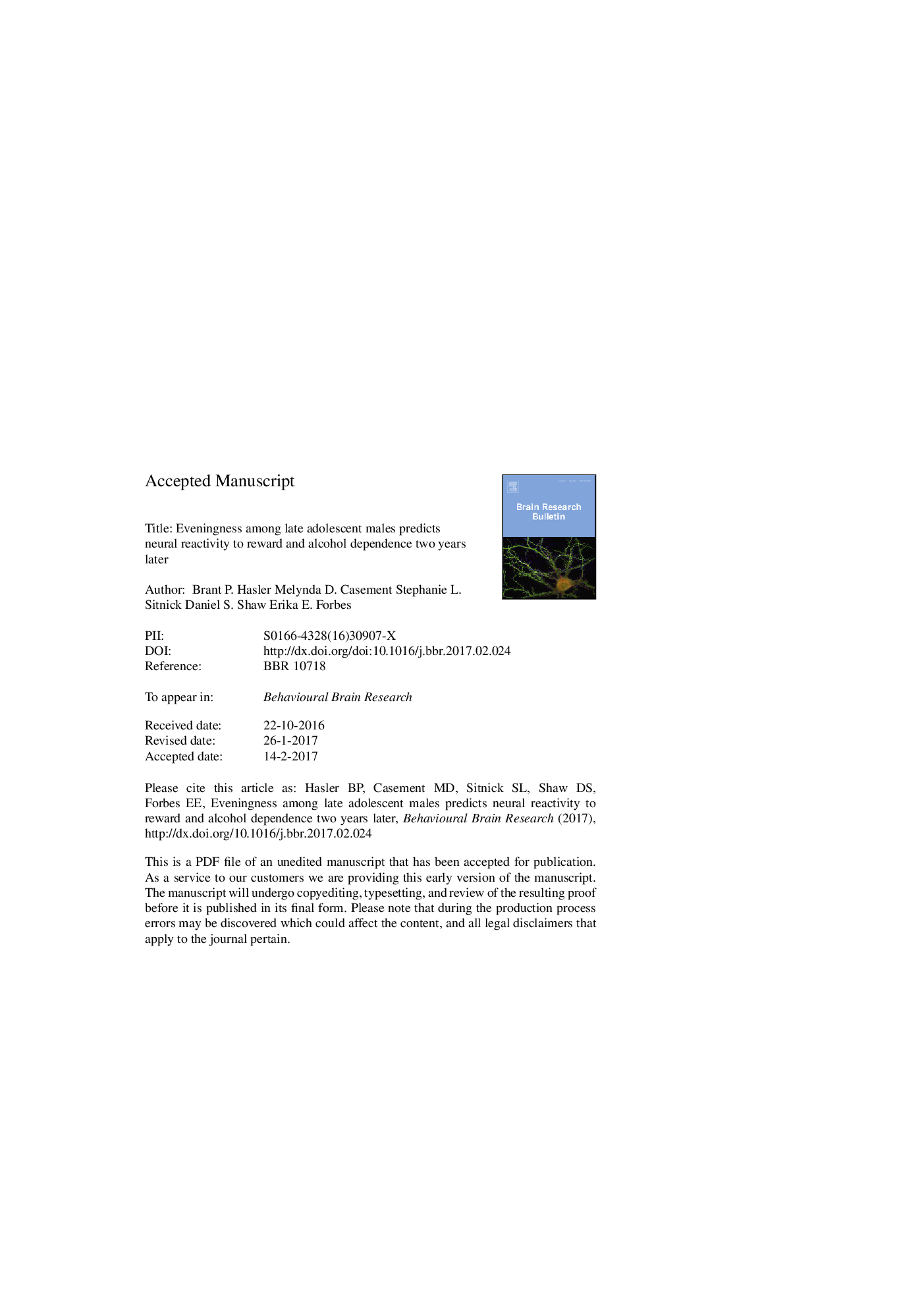| کد مقاله | کد نشریه | سال انتشار | مقاله انگلیسی | نسخه تمام متن |
|---|---|---|---|---|
| 5735496 | 1612908 | 2017 | 44 صفحه PDF | دانلود رایگان |
عنوان انگلیسی مقاله ISI
Eveningness among late adolescent males predicts neural reactivity to reward and alcohol dependence 2 years later
ترجمه فارسی عنوان
شب عروسی در میان مردان دیرهنگام نوجوان 2 سال پیش واکنش عصبی به پاداش و وابستگی به الکل را پیش بینی می کند
دانلود مقاله + سفارش ترجمه
دانلود مقاله ISI انگلیسی
رایگان برای ایرانیان
کلمات کلیدی
موضوعات مرتبط
علوم زیستی و بیوفناوری
علم عصب شناسی
علوم اعصاب رفتاری
چکیده انگلیسی
Eveningness, a preference for later sleep-wake timing, is linked to altered reward function, which may explain a consistent association with substance abuse. Notably, the extant literature rests largely on cross-sectional data, yet both eveningness and reward function show developmental changes. We examined whether circadian preference during late adolescence predicted the neural response to reward 2 years later. A sample of 93 males reported circadian preference and completed a monetary reward fMRI paradigm at ages 20 and 22. Primary analyses examined longitudinal paths from circadian preference to medial prefrontal cortex (mPFC) and ventral striatal (VS) reward responses. We also explored whether reward responses mediated longitudinal associations between circadian preference and alcohol dependence, frequency of alcohol use, and/or frequency of cannabis use. Age 20 eveningness was positively associated with age 22 mPFC and VS responses to win, but not associated with age 22 reactivity to reward anticipation. Age 20 eveningness was indirectly related to age 22 alcohol dependence via age 22 mPFC response to win. Our findings provide novel evidence that altered reward-related brain function could underlie associations between eveningness and alcohol use problems. Eveningness may be an under-recognized but modifiable risk factor for reward-related problems such as mood and substance use disorders.
ناشر
Database: Elsevier - ScienceDirect (ساینس دایرکت)
Journal: Behavioural Brain Research - Volume 327, 1 June 2017, Pages 112-120
Journal: Behavioural Brain Research - Volume 327, 1 June 2017, Pages 112-120
نویسندگان
Brant P. Hasler, Melynda D. Casement, Stephanie L. Sitnick, Daniel S. Shaw, Erika E. Forbes,
